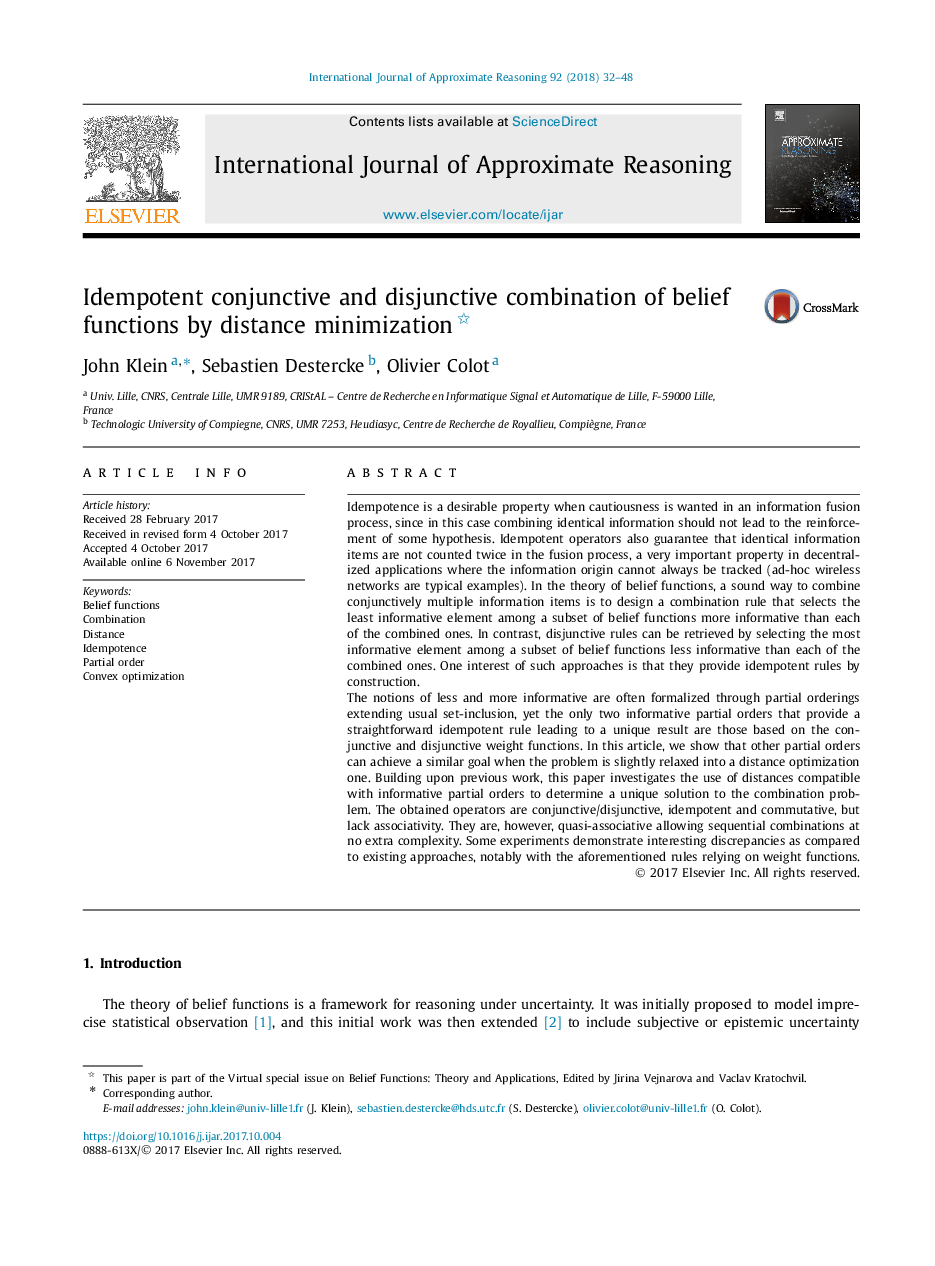| Article ID | Journal | Published Year | Pages | File Type |
|---|---|---|---|---|
| 6858855 | International Journal of Approximate Reasoning | 2018 | 17 Pages |
Abstract
The notions of less and more informative are often formalized through partial orderings extending usual set-inclusion, yet the only two informative partial orders that provide a straightforward idempotent rule leading to a unique result are those based on the conjunctive and disjunctive weight functions. In this article, we show that other partial orders can achieve a similar goal when the problem is slightly relaxed into a distance optimization one. Building upon previous work, this paper investigates the use of distances compatible with informative partial orders to determine a unique solution to the combination problem. The obtained operators are conjunctive/disjunctive, idempotent and commutative, but lack associativity. They are, however, quasi-associative allowing sequential combinations at no extra complexity. Some experiments demonstrate interesting discrepancies as compared to existing approaches, notably with the aforementioned rules relying on weight functions.
Related Topics
Physical Sciences and Engineering
Computer Science
Artificial Intelligence
Authors
John Klein, Sebastien Destercke, Olivier Colot,
